
Merry Crisis (Demo)
After a break-up turns your world inside out, you return home for Christmas hoping the change in scenery will give you space to mend a broken heart.
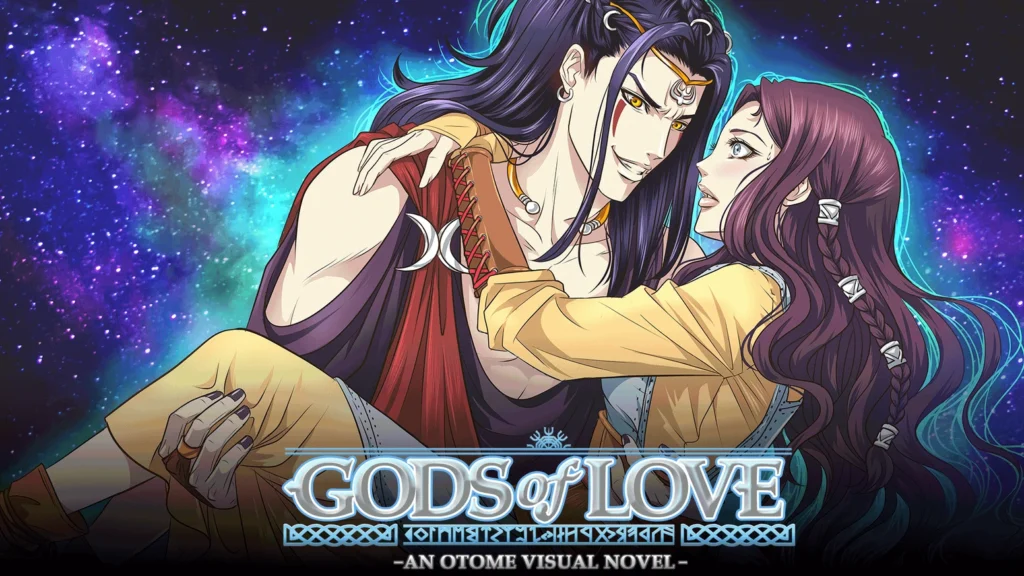
Otome games have long been cherished among fans of visual novels, offering immersive narratives centered around romance and character development. Gods of Love by Y Press Games takes this genre to new heights by intertwining elements of mythology and fantasy, creating a unique and enchanting experience. The game invites players into a world where gods walk among mortals, each harboring desires and secrets, and where one woman’s choices can shape the fate of both realms.
In Gods of Love, players take on the role of Thalia, a gifted healer whose mysterious powers draw the attention of four divine beings. Each god presents a different romantic path, filled with challenges, intrigues, and revelations. As Thalia navigates her relationships with these gods, she uncovers secrets about her powers and the divine conflicts threatening the mortal world. This game offers players a richly woven narrative where every choice leads to different outcomes and discoveries.
One of the most striking aspects of Gods of Love is its visual presentation. The game features intricate character designs and lush backgrounds that bring the mythological world to life. Each scene is crafted with vibrant colors and detailed illustrations that capture the ethereal beauty of the divine and mortal realms. The art style combines modern aesthetics with classical influences, creating a visually stunning experience that immerses players in the game’s enchanting world.
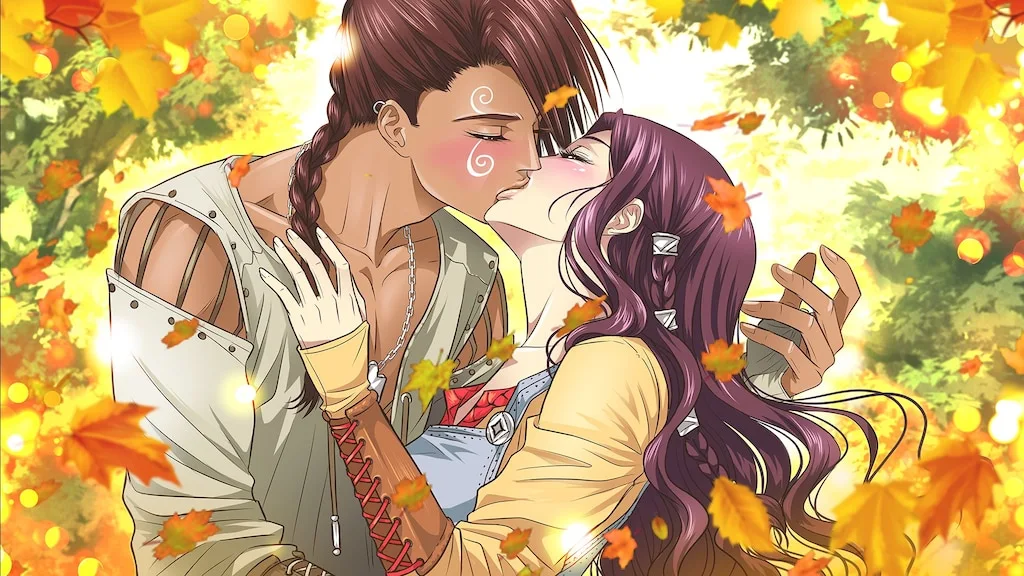
The character designs are particularly noteworthy, as each god is uniquely portrayed to reflect their distinct personalities and domains. Helder, the god of Light and Virtue, is depicted with a radiant appearance, while Exinious, the god of the Underworld, is shrouded in dark allure. Lysander, the god of Fertility, exudes charisma and sensuality, and Rhane, the god of nothing, embodies a humble demeanor. These designs enhance the storytelling and make the characters memorable and relatable.
Complementing the visual excellence of Gods of Love is its captivating audio design. The soundtrack features musical compositions that match the mood and tone of each scene. From haunting melodies to uplifting tunes, the music adds depth and emotion to the experience. The sound effects further enhance the immersion, providing an auditory backdrop that makes the world of the gods feel alive.
Voice acting is another key component of the game’s audio experience. Each character is brought to life by talented voice actors who convey the nuances of their personalities. The voice performances add depth to the dialogues, making interactions more engaging and impactful. This attention to detail in both visuals and audio elevates Gods of Love beyond a typical visual novel, creating an immersive experience for players.
At the heart of Gods of Love is a compelling narrative that explores themes of love, power, and destiny. The story follows Thalia, a skilled healer whose mysterious abilities attract the attention of four divine beings. Her journey begins when she encounters Lysander, the god of Fertility, who reveals her true nature and sets off a series of events that change her life. As Thalia navigates her relationships with the gods, she uncovers secrets about her powers and the divine conflicts threatening the mortal world.
The game’s storyline is rich with mythology and intrigue, drawing inspiration from various legends and tales of gods and mortals. Players are immersed in a world where divine beings walk among humans, each with their motives. The interactions between Thalia and the gods are central to the narrative, as each god offers a different romantic path, complete with challenges and revelations.
The branching storyline allows players to explore multiple routes, each offering a distinct perspective on the overarching plot. This replayability adds depth to the narrative, encouraging players to experience each god’s storyline and uncover the hidden facets of their personalities and histories. As players make choices that influence the direction of the story, they become active participants in shaping the fate of the characters and the world around them.
Gods of Love also delves into themes of self-discovery and empowerment as Thalia learns to harness her powers and assert her agency. Her journey is one of growth and transformation as she navigates the challenges posed by her relationships with the gods. This focus on character development and emotional depth adds complexity to the narrative, making it engaging and thought-provoking.
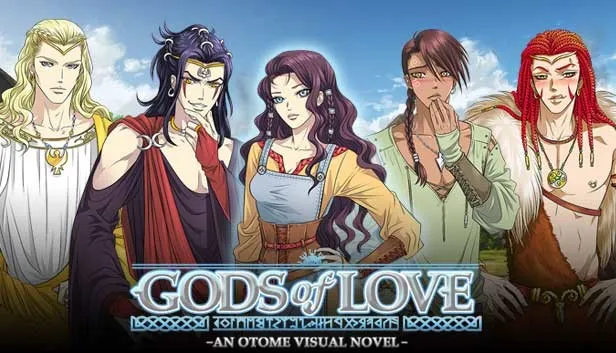
The characters in Gods of Love are central to the game’s appeal, each offering a distinct personality and storyline that enrich the narrative. Here are the key characters players will encounter:
Each character brings something unique to the table, offering players diverse experiences and emotional journeys. The dynamic relationships between Thalia and the gods create a rich tapestry of interactions, driving the narrative forward and engaging players on multiple levels. The characters’ development and growth throughout the game make them memorable and compelling, ensuring players become invested in their stories.
Gods of Love is an otome visual novel that combines traditional storytelling with interactive gameplay. Players progress by making choices that influence the storyline and character relationships. These decisions are crucial as they determine which romantic path Thalia will follow and how the story unfolds.
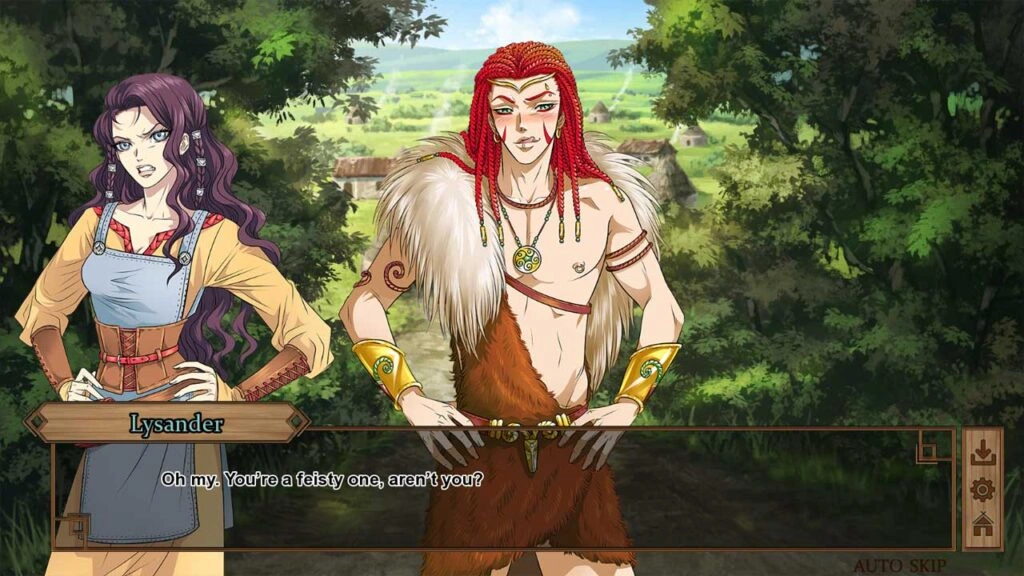
The game offers a range of dialogue options and branching storylines, allowing players to shape their experiences. Each choice can lead to different outcomes, encouraging players to explore multiple routes and uncover hidden secrets. The interactive nature of the game provides a sense of agency and immersion, making players feel invested in the story.
In addition to its branching narratives, Gods of Love features beautifully illustrated CGs (computer graphics) that highlight key moments in the story. These visual rewards add depth to the gameplay experience, providing players with stunning artwork that complements the narrative.
The game includes various endings, adding to its replayability. Depending on the choices made throughout the story, players can unlock different conclusions, offering unique perspectives on the characters’ journeys. This encourages players to explore all the routes and make different decisions to see how the story unfolds.
Despite its strengths, Gods of Love has faced criticism. Here are some common issues:
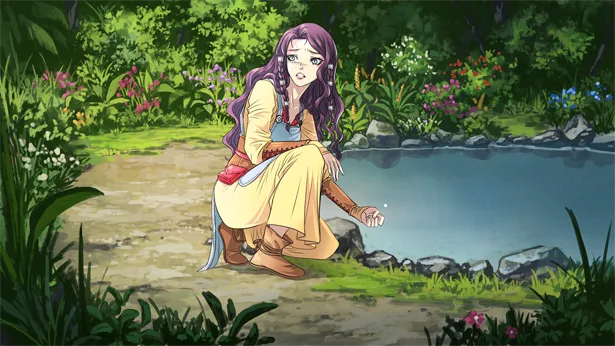
Player feedback on Gods of Love is a mix of praise and criticism. Here are some important points from player reviews:
Overall, Gods of Love is a visually stunning and engaging otome game offering a unique blend of romance, mythology, and divine intrigue. While it has shortcomings, the game provides an enjoyable experience for fans of the genre, with captivating characters and immersive storytelling. Players are drawn to the game’s rich mythological themes and dynamic relationships, making it a must-play for otome enthusiasts seeking a fresh narrative.
| Developers | Y Press Games |
|---|---|
| Genres | OtomeRomanceVisual Novel |
| Platforms | Android, Steam |
| Released on | 2020-03-20 |